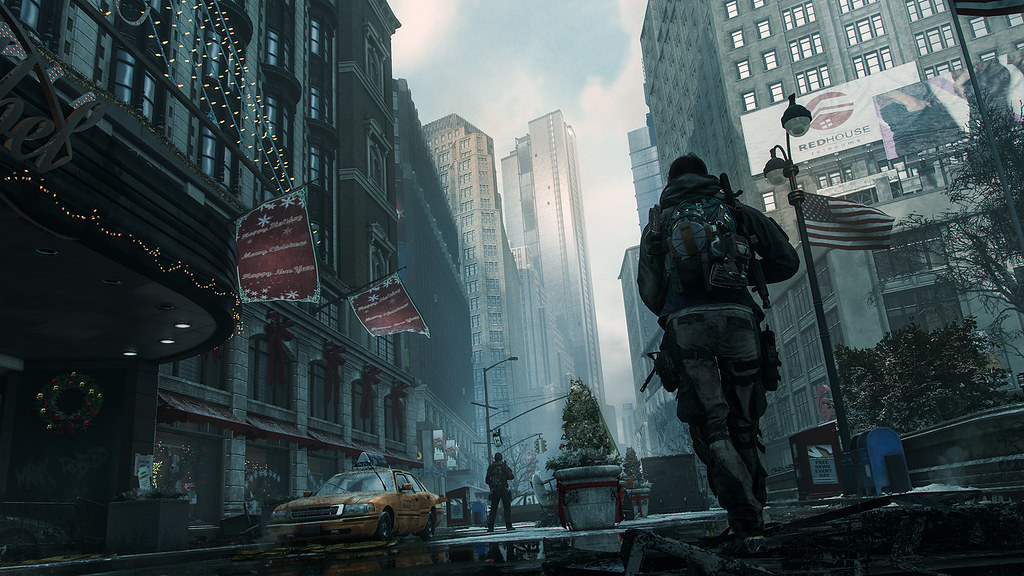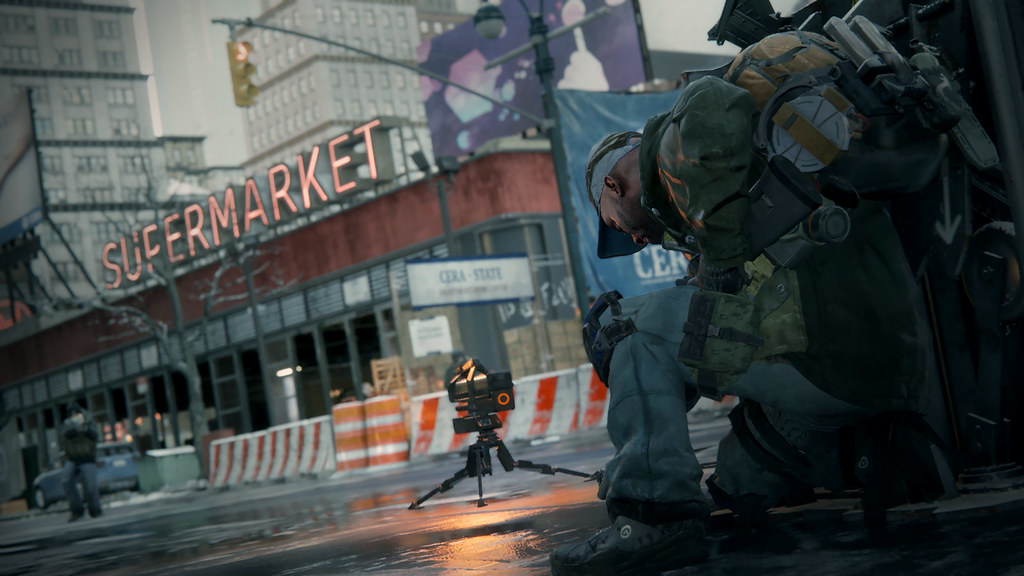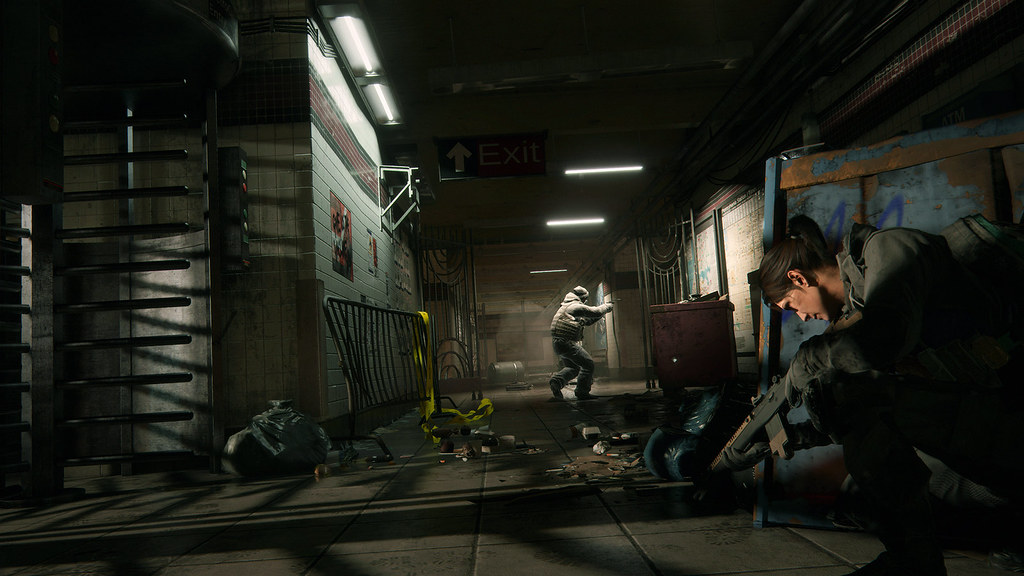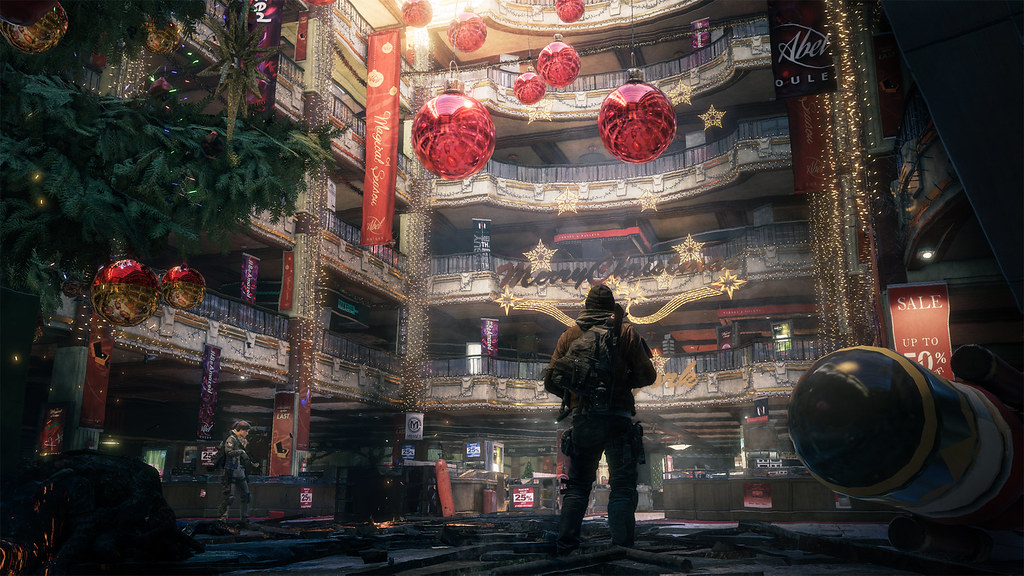
First revealed at E3 2013, Tom Clancy’s The Division introduced us to a post-apocalyptic vision of New York City realized in jaw-dropping detail.
Bringing Ubisoft’s vision of a post-pandemic urban battleground to life isn’t a task that the development team are keen to rush, so at E3 2015 there were still plenty of details to be unveiled — and this year was the turn of the Dark Zone.
This in-game PvP realm invites players to take on a variety of missions either as a team, a lone wolf or — as Executive Producer Fred Rundqvist told me — as a rogue agent hell-bent on securing the Dark Zone’s extra-special loot drops all for themselves.
“Essentially, the Dark Zone is a lawless area where you can go rogue, steal other people’s loot, and potentially betray your own teammates,” Fred explains.
As the hands-on demo from the E3 show floor demonstrated, patrolling the Dark Zone is a nervy, tense experience where you’re never quite sure who to trust — whether that’s other player-controlled squads, or members of your own team. But as with much of The Division, your experience and how you choose to play needn’t be restricted by how many friends — from your PSN list, match-made or met in-game — are also playing.
“You can play on your own, absolutely, or as part of a team,” Fred says. “If you want to play alongside others, you can hook up with people inside the game world and form a group, or go through matchmaking and start as part of a team. If you’re playing solo you won’t get totally overwhelmed — enemies scale to give a challenge to just one person or to a larger team.”
So those fears that The Division can only be enjoyable with the level of tactics and comms that we’ve seen in the trailers can be put to one side.
As Fred explains; “It’ll be your choice to work with other players, or against them. The Division is a loot and progression driven game, so the main reason to engage another player in combat within the Dark Zone is to take the loot that they’re carrying and use it for yourself.”
Tempting as that may be, greed can easily get the better of you. “By doing that, you’re taking a fairly large risk. As soon as you’re openly hostile to another player, you’ve gone rogue and you’ll be flagged to all the other agents in the area. If they take you out, they’ll gain an extra bounty that’s placed on rogue agents, earn extra XP, and can pick up whatever it was that you stole.
“So the game is more balanced than just being a free-for-all — you have you decide if it’s worth it, who you’ll be up against, and the strength of your team before you go rogue and engage another player.”
How you approach life in the Dark Zone, and outside in the wider world of The Division, is likely to depend on how you want to play the game. But, as Fred explains, you won’t find yourself locked in to a specific class, loadout or speciality.
“We like to think of The Division as a ‘classless’ game — you’ll unlock skills and talents as you level up and then you can specialize in a specific path. Or you can try to follow them all and level up that way and switch between them,” he says.
“Most people have a preferred playing style, whether you’re the supporting medic, the long range sniper, or if you want to go in aggressively and deal a lot of damage. To me, that’s the beauty of The Division — it’s an evolution of traditional RPGs.”















Comments are closed.
20 Comments
Loading More Comments